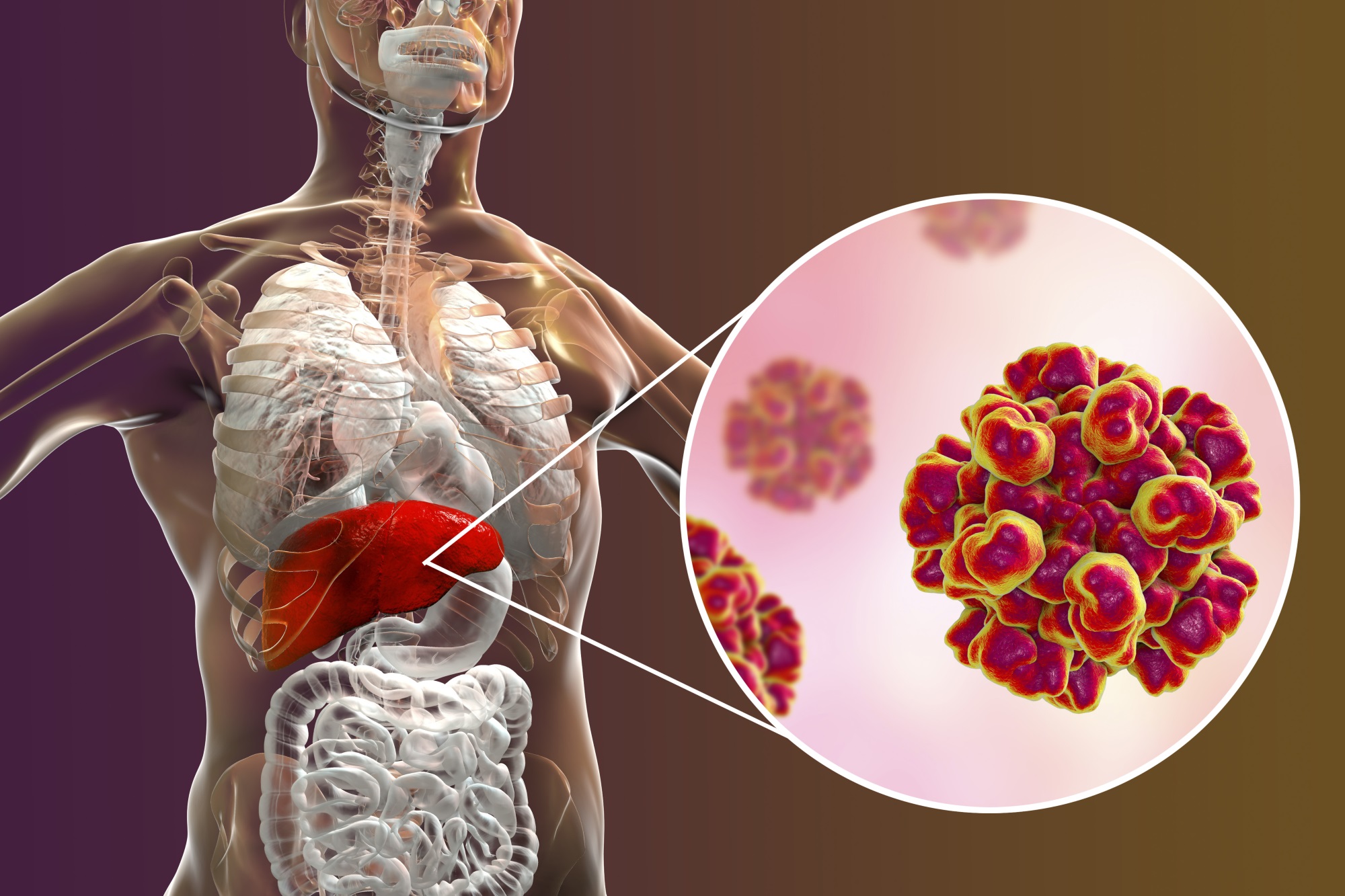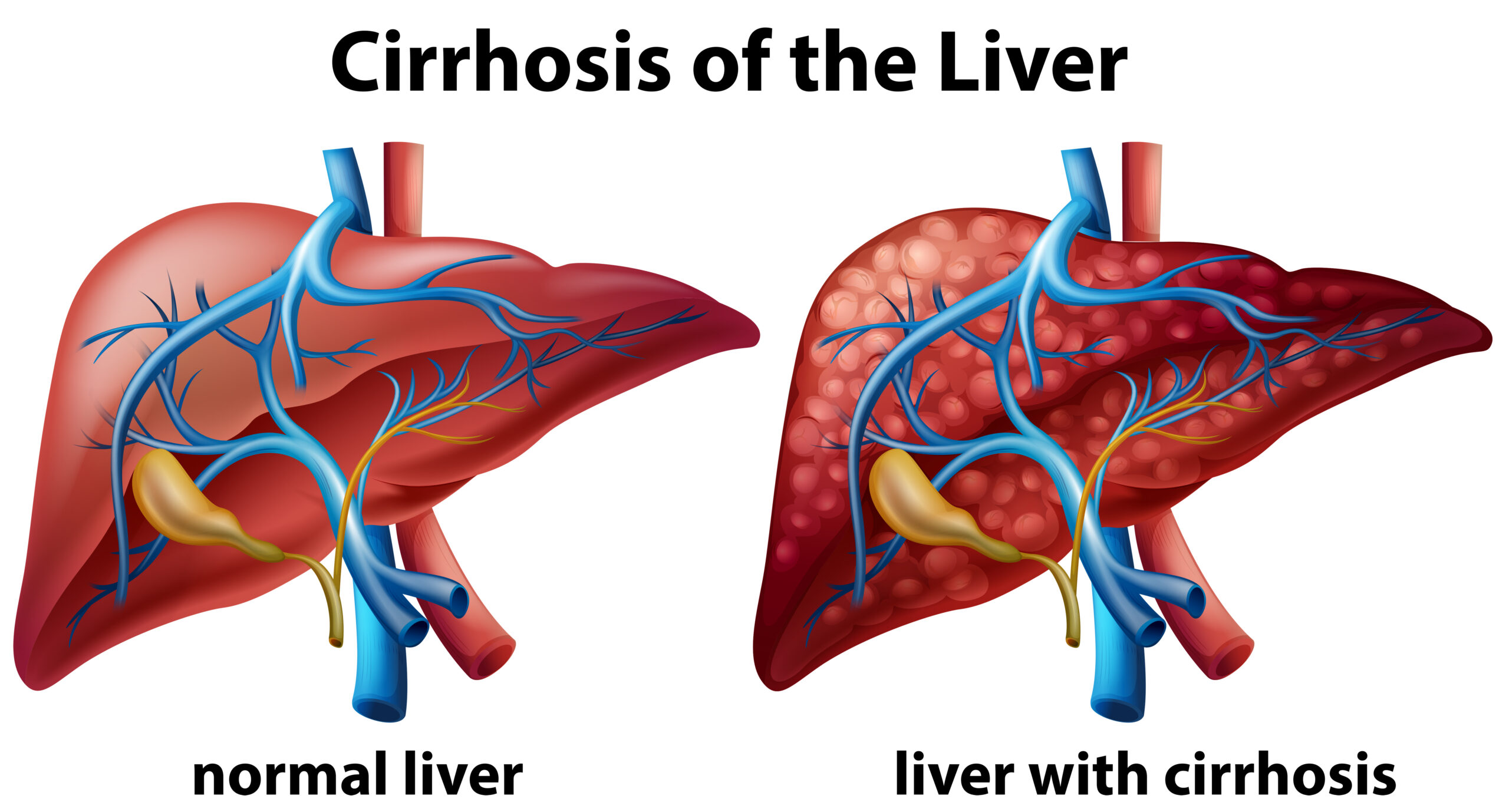Hepatology, Hepatitis, Cirrhosis, Liver, Gastroenterology, Immunology
Root Cause of Disease
Liver disease can be inherited (genetic). Liver problems can also be caused by a variety of factors that damage the liver, such as viruses, alcohol use and obesity.
Over time, conditions that damage the liver can lead to scarring (cirrhosis), which can lead to liver failure, a life-threatening condition. But early treatment may give the liver time to heal.
Symptoms
Liver disease doesn’t always cause noticeable signs and symptoms. If signs and symptoms of liver disease do occur, they may include:
- Skin and eyes that appear yellowish (jaundice)
- Abdominal pain and swelling
- Swelling in the legs and ankles
- Itchy skin
- Dark urine colour
- Pale stool colour
- Chronic fatigue
- Nausea or vomiting
- Loss of appetite
- Tendency to bruise easily
Causes
Liver disease has many causes.
Infection:
Parasites and viruses can infect the liver, causing inflammation that reduces liver function. The viruses that cause liver damage can be spread through blood or semen, contaminated food or water, or close contact with a person who is infected. The most common types of liver infection are hepatitis viruses, including:
- Hepatitis A
- Hepatitis B
- Hepatitis C
Immune system abnormality:
Diseases in which your immune system attacks certain parts of your body (autoimmune) can affect your liver. Examples of autoimmune liver diseases include:
- Autoimmune hepatitis
- Primary biliary cholangitis
- Primary sclerosing cholangitis
Genetics:
An abnormal gene inherited from one or both of your parents can cause various substances to build up in your liver, resulting in liver damage. Genetic liver diseases include:
- Hemochromatosis
- Wilson’s disease
- Alpha-1 antitrypsin deficiency
Cancer and other growths:
Examples include:
- Liver cancer, Bile duct cancer, Liver adenoma
Home Remedies to treat Liver Disease
Remedy – 1: Papaya
Materials: Papaya, Honey, Lemon

Fresh papaya may help with liver cirrhosis. Papaya seeds also make for a useful home remedy.
- Eat fresh papaya as part of breakfast every day. This can be a healthy habit.
- Consume papaya juice mixed with lemon juice as an additional remedy for cirrhosis.
- Extract juice of papaya seeds and have it with lemon juice.
Procedure:
- Take a fresh papaya and wash it.
- Clean the papaya and make it into small pieces.
- Keep it in the mixer and extract the juice.
- Add lemon juice to the papaya and drink it freshly.
Product link: Papaya
Remedy – 2: Garlic
Materials: Garlic

Garlic is both used as a food flavoring and as a traditional medicine that helps in many health disorders including those of liver. Due to its high selenium content, garlic helps cleanse the liver. Garlic detoxifies the body and helps activate liver enzymes.
- Consuming garlic cloves on an empty stomach may help you reap the benefits of it.
- Include garlic in meals, though consuming raw garlic is more beneficial
Product link: Garlic
Remedy – 3: Green tea(గ్రీన్ టీ)
Materials: Green tea bag

Green tea, dandelion root tea are natural remedies for liver problems. However, the effect of green tea on individuals depends on their health status. It may help in maintaining good liver function in already healthy individuals.
- Brew the concoctions made from green tea or dandelion root powder or powdered licorice root and drink it twice a day.
- Include these as a part of your everyday diet
Procedure:
- Heat the water in a stainless steel pot. Make sure it doesn’t come to a boiling point, which is 100 degrees C. The temperature of the water should be around 80-85 degrees C.
- Put the green tea bag into the clay or stainless steel cup.
- Pour the hot water into the cup and cover it with a small lid. Let it steep for 3 minutes
- After 3 minutes is over, remove the lid and remove the tea bag.
- Stir with a spoon and take a rejuvenating sip!
Product link: Green-tea
Preventions
To prevent liver disease:
- Drink alcohol in moderation.For healthy adults, that means up to one drink a day for women and up to two drinks a day for men. Heavy or high-risk drinking is defined as more than eight drinks a week for women and more than 15 drinks a week for men.
- Get vaccinated.If you’re at increased risk of contracting hepatitis or if you’ve already been infected with any form of the hepatitis virus, talk to your doctor about getting the hepatitis A and hepatitis B vaccines.
- Use medications wisely.Take prescription and nonprescription drugs only when needed and only in recommended doses.
- Avoid contact with other people’s blood and body fluids.Hepatitis viruses can be spread by accidental needle sticks.
- Keep your food safe. Wash your hands thoroughly before eating or preparing foods.




